Mahakal Van - Ujjain, MP
Experience the divine essence of nature at Mahakal Van, where we honor the sacred bond between Lord Shiva and the environment. In collaboration with Read more
Project Update 1
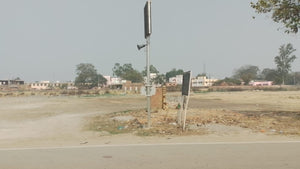
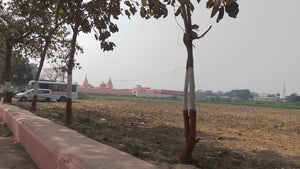
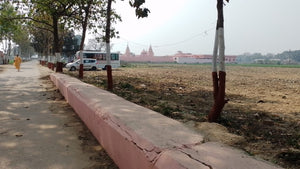
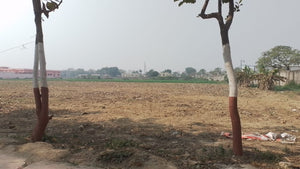
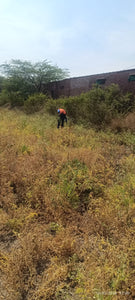
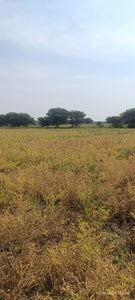

Digital Forest
Forest with 604 Trees planted
Want to plant your tree now?
Plant a Tree @ 299Mahakal Van - Ujjain, MP
Experience the divine essence of nature at Mahakal Van, where we honor the sacred bond between Lord Shiva and the environment. In collaboration with local farmers, we are planting native fruit trees and Bel Patra near Mahakaleshwar Temple in Ujjain, creating a serene haven known as Mahakal Van.
Address: Mahakal Van, Near Aastha Gurukul, Ujjain, MP-456006
Project Aim: Mahakal Van, nestled near the revered Mahakaleshwar Temple in Ujjain, aims to pay homage to Lord Shiva, the preserver of life and nature, through the creation of a lush forest dedicated to him. Our project focuses on planting native fruit trees such as Bel Patra, Jackfruit, Lemon, Mango, Orange, and Amla, near the temple premises in anticipation of Shivratri. By collaborating with local farmers, we aim to revive the sacred tradition of planting trees in honor of Lord Shiva and nurturing the land.
Primary Objectives:
-
Sustainable Agriculture: Through the "Trees for Shiv Ji" initiative, we aim to promote sustainable agriculture practices among local farmers by incorporating native fruit trees into agroforestry systems. By integrating tree planting with agricultural activities, we enhance soil health, conserve water, and improve farm resilience to climate change, thereby ensuring long-term sustainability of farming practices.
-
Carbon Sequestration: The planting of native fruit trees and Bel Patra in Mahakal Van serves as a vital strategy for carbon sequestration, capturing and storing atmospheric carbon dioxide. By enhancing carbon sinks in the region, we contribute to mitigating climate change and reducing greenhouse gas emissions, thereby supporting global efforts to combat environmental degradation and promote climate resilience.
-
Increase in Farm Yield: By diversifying farm landscapes with native fruit trees, farmers can experience an increase in farm yield and productivity. The presence of fruit trees provides additional sources of income, improves soil fertility, and attracts pollinators, leading to enhanced crop yields and economic opportunities for local farmers. This increase in farm yield contributes to food security and economic prosperity in the community.
Benefits of the Forest:
-
Biodiversity: The diverse array of native fruit trees and Bel Patra in Mahakal Van enhances biodiversity, attracting a variety of birds, insects, and wildlife, thus creating a balanced ecosystem.
-
Spiritual Sanctity: Mahakal Van serves as a spiritual sanctuary where devotees can connect with nature and seek solace in the tranquil surroundings, deepening their reverence for Lord Shiva.
-
Environmental Conservation: By planting fruit trees and Bel Patra, we contribute to environmental conservation efforts, promoting soil health, air quality, and carbon sequestration in the region.
-
Community Engagement: Our collaboration with local farmers fosters community engagement and empowerment, providing livelihood opportunities while instilling a sense of ownership and pride in the preservation of natural heritage.
-
Cultural Preservation: Mahakal Van honors the cultural heritage of Ujjain by reviving age-old traditions of tree planting and reverence for nature, preserving ancestral wisdom for future generations.
Native Fruit Tree Species Planted:
-
बिलपत्र (Bel Patra): Bel Patra, also known as Bael or Bilva, is a tropical fruit native to India and Southeast Asia. It has a hard, woody shell and aromatic pulp with a unique flavor profile. Wood Apple is revered in Hindu culture for its medicinal properties and is often used in religious rituals and Ayurvedic remedies.
-
कटल (Jackfruit): Jackfruit, known for its large size and sweet flavor, is a versatile tropical fruit native to the Indian subcontinent. It is rich in nutrients, including vitamin C, potassium, and dietary fiber, making it a valuable addition to local diets and cuisines.
-
नींबू (Lemon): Lemons are citrus fruits renowned for their sour taste and high vitamin C content. They are widely used in culinary applications, beverages, and traditional medicine due to their antioxidant properties and refreshing flavor.
-
आम (Mango): Mangoes, often referred to as the "king of fruits," are beloved for their juicy sweetness and vibrant color. Native to South Asia, mangoes are rich in vitamins A and C, as well as antioxidants, making them a popular choice for desserts, juices, and snacks.
-
संतरा (Orange): Oranges are citrus fruits prized for their tangy flavor and nutritional benefits. They are a good source of vitamin C, fiber, and antioxidants, promoting immune health and overall well-being. Oranges are commonly consumed fresh, juiced, or used in cooking and baking.
-
आंवला (Indian Gooseberry): Indian Gooseberry, or Amla, is a nutrient-rich fruit prized for its sour taste and medicinal properties. It is a potent source of vitamin C and antioxidants, promoting digestive health, skin vitality, and immune function. Amla is used in various culinary preparations, herbal formulations, and hair care products.
Mahakal Van symbolizes our commitment to harmonizing spirituality with environmental stewardship, creating a sacred space where the divine presence of Lord Shiva resonates through the flourishing trees and verdant landscapes. Join us in this noble endeavor to nurture the earth and celebrate the eternal bond between humanity and nature.
Trees for Corporates
Trending
Most Popular
Mahakal Van Project
The Mahakal Van Project near Mahakaleshwar Temple in Ujjain aims to create a verdant forest dedicated to Lord Shiva. Through native fruit tree plantings and collaborations with local farmers, the project seeks to honor Shiva's connection to nature and preserve biodiversity. By fostering community engagement and environmental stewardship, Mahakal Van becomes a symbol of spiritual reverence and sustainable development in the region.
Native Fruit Trees
The planting of native fruit trees such as Jackfruit, Lemon, Mango, Orange, Wood Apple, and Indian Gooseberry in Mahakal Van enhances biodiversity and ecosystem resilience. These trees not only honor Lord Shiva but also provide valuable resources for the community, including food, shade, and medicinal benefits. By promoting the cultivation of native species, Mahakal Van contributes to environmental conservation and supports sustainable agriculture practices, ensuring the long-term health of the ecosystem.
Bel Patra Plantation
Bel Patra, or leaves of the Bel tree, hold significant religious importance in Hinduism, particularly in worshiping Lord Shiva. The Bel Patra plantation in Mahakal Van serves as a sacred offering to Shiva, symbolizing devotion and spiritual reverence. Additionally, Bel trees contribute to ecological balance by providing habitat for wildlife and improving soil fertility. By incorporating Bel Patra into the forest landscape, Mahakal Van becomes a sanctuary for both worship and environmental conservation.
Collaboration with Local Farmers
The Mahakal Van Project emphasizes collaboration with local farmers to revive the tradition of tree planting and promote sustainable land management practices. By engaging farmers in tree cultivation and agroforestry initiatives, the project creates economic opportunities, enhances soil health, and strengthens community resilience. Through knowledge exchange and capacity-building activities, Mahakal Van fosters a sense of ownership and stewardship among farmers, ensuring the long-term success of the initiative.
Spiritual Significance
Mahakal Van holds deep spiritual significance as a sacred forest dedicated to Lord Shiva, the preserver of life and nature. Inspired by the rich traditions of tree worship and reverence for the natural world, the project embodies the spiritual connection between humanity and the environment. By creating a space for prayer, meditation, and contemplation, Mahakal Van becomes a place of spiritual renewal and ecological harmony, where devotees can connect with divinity in the midst of nature.
Environmental Conservation
Environmental conservation lies at the heart of the Mahakal Van Project, which seeks to restore greenery, promote biodiversity, and mitigate climate change. Through tree plantings, habitat restoration, and sustainable land management practices, the project contributes to ecosystem resilience and wildlife habitat preservation. By raising awareness about the importance of environmental stewardship and engaging the community in conservation efforts, Mahakal Van becomes a beacon of hope for future generations, ensuring the protection of natural resources for years to come.
FAQ
What is Mahakal Van and where is it located?
Mahakal Van is a planned forest dedicated to Lord Shiva, located near the revered Mahakaleshwar Temple in Ujjain. It serves as a spiritual sanctuary and an environmental initiative to honor the preserver of life and nature.
Why is Mahakal Van being created near Mahakaleshwar Temple?
Mahakal Van is being created near Mahakaleshwar Temple to pay homage to Lord Shiva, the preserver of life and nature. It aims to revive the sacred tradition of planting trees in his honor and nurturing the land as a symbol of environmental stewardship.
What trees are being planted in Mahakal Van?
Mahakal Van features a variety of native fruit trees such as Jackfruit, Lemon, Mango, Orange, and Indian Gooseberry, along with Bel Patra. These trees not only honor Lord Shiva but also contribute to biodiversity and sustainable agriculture.
How does Mahakal Van contribute to environmental conservation?
Mahakal Van contributes to environmental conservation by restoring greenery, enhancing biodiversity, and mitigating climate change. The native fruit trees planted in the forest act as carbon sinks, sequestering carbon dioxide and improving air quality.
Who is involved in the creation of Mahakal Van?
Mahakal Van is a collaborative effort involving local farmers, environmental organizations, and devotees of Lord Shiva. Together, they aim to revive the sacred tradition of tree planting and nurture the land for the well-being of present and future generations.
What role do local farmers play in the Mahakal Van project?
Local farmers play a crucial role in the Mahakal Van project by providing expertise in agriculture, land management, and tree cultivation. Their participation fosters community engagement, empowers local initiatives, and promotes sustainable livelihoods.
How will Mahakal Van benefit the community?
Mahakal Van benefits the community by providing a green space for recreation and spiritual contemplation, enhancing air and water quality, and promoting sustainable development. Additionally, the project creates opportunities for eco-tourism and cultural enrichment.
What measures are being taken to ensure the success of Mahakal Van?
To ensure the success of Mahakal Van, comprehensive planning, monitoring, and maintenance strategies are being implemented. These include regular tree care, water management, community involvement, and ongoing assessment of environmental impact.
How can individuals contribute to the Mahakal Van project?
Individuals can contribute to the Mahakal Van project by volunteering for tree planting activities, Planting trees , spreading awareness about environmental conservation, and participating in educational programs and events organized by the project.
When will Mahakal Van be open to the public?
Mahakal Van will be open to the public upon completion of the initial phase of tree planting and infrastructure development. Visitors will have the opportunity to explore the forest, engage in nature-based activities, and experience the spiritual ambiance of the sacred site.
- Choosing a selection results in a full page refresh.
- Opens in a new window.












